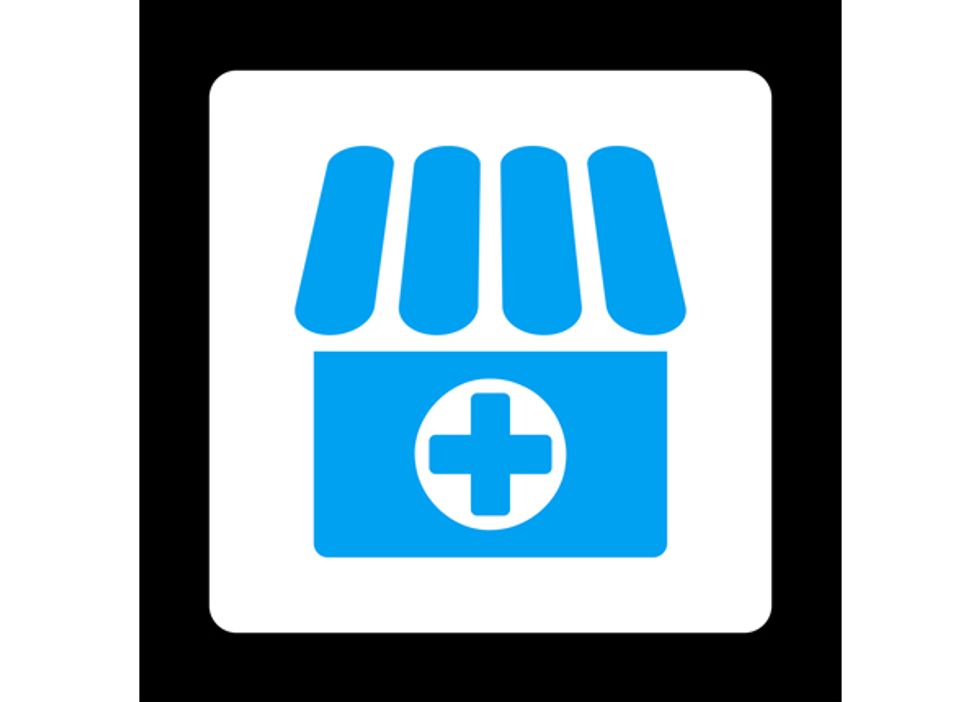It's a common scenario: It's after-hours or a weekend and you need to see your doctor. But the office is closed.
Or it's flu season and you can't get an appointment to see your doctor for two weeks.
Maybe you're out of town and don't have access to your regular physician. Or you don't have your own physician.
It's not exactly an emergency—your throat is scratchy and sore—but you don't want to wait to see your doctor.
More people are turning to walk-in clinics to treat acute yet minor conditions and basic complaints like sore throats, conjunctivitis, upper respiratory infections and more. Of these visits, more than 44 percent take place when physician offices are closed.
These "safety-net providers" are able to relieve the stress on emergency rooms and offer many people immediate and adequate care without an appointment and with short wait times. They're different from urgent care centers in that they are located within stores, like CVS, Target, Walmart, Walgreens and grocery chains, and they are almost exclusively staffed by physician assistants or nurse practitioners.
Retail clinics are convenient and affordable, with visits generally costing between $45 and $75, and most take health insurance. Prices are usually posted, so you know ahead of time what you'll be spending. Many also provide services like immunizations and school or camp physicals. And with pharmacists on staff, they can provide quick access to prescribed medications as well as knowledgeable advice on proper usage of both prescribed and over-the-counter drugs.
Many retail clinics are also useful in connecting people to other sources of health: foods, products and services. For instance, someone with diabetes or hypertension, who needs to be on a restricted diet and adhere to a healthy lifestyle, can have easy access to groceries, medical supplies and other equipment like pedometers and light exercise equipment.
From the time they appeared on the scene in early 2000, visits to these clinics have grown tremendously. By 2012, they recorded about 10.5 million patient visits. The number of clinics also has expanded rapidly: since 2006, their numbers have increased almost 900 percent, from 200 to 1,800.
But retail clinics do have their detractors. Groups, like the American Medical Association, raise concerns such as these:
- They question the quality of care.
- They are uneasy about the potential overprescribing of antibiotics.
- They're concerned that clinics may interfere with patient-physician relationships and be a lost opportunity for preventive care.
Others feel that retail clinics are a viable alternative to care. Their arguments include:
- Care costs less than similar care at a physician's office, urgent care center or emergency department.
- Patients are not prescribed antibiotics more in retail clinics than in other settings, data show.
- The majority of people who seek care at retail clinics report having no primary care physician, so there is no disruption in a relationship that doesn't exist.
- A study that evaluated the quality of care for ear infections, pharyngitis and urinary tract infections found retail clinics were superior to emergency departments and ambulatory care facilities.
To go or not to go? Ultimately the decision rests in your hands. Perhaps you know someone who was treated in a retail clinic near you. Why not ask how their experience was?
Personally, I went to my nearby CVS for my flu shot last year because I didn't feel like driving to my doctor, about 15 miles away. I was passing right by the store and needed to go in to buy some things anyway. I'm happy to say that the specially trained pharmacist who dispensed the shot was both professional and gentle.
And being a bit needle-phobic, I especially appreciated the latter of the two.
References:
https://www.rwjf.org/en/culture-of-health/2015/05/how_retail_clinicsa.html
https://www.rwjf.org/en/culture-of-health/2015/05/how_retail_clinicsa.html
https://www.rand.org/health/feature/retail-clinics.html

